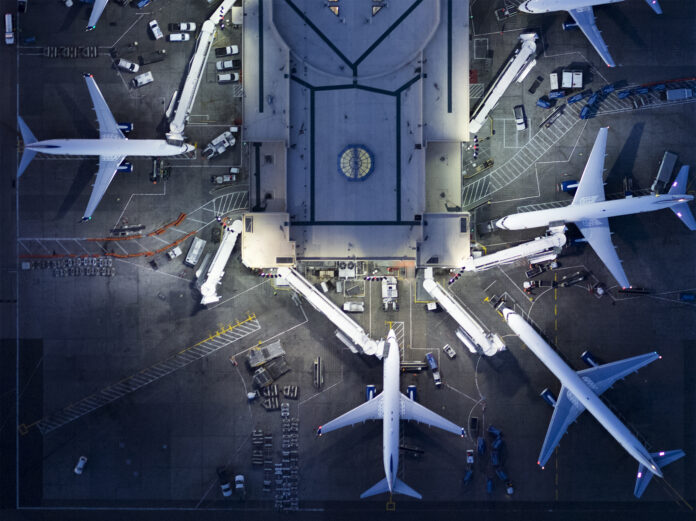The Trudeau government’s aborted intention this week to ramp up travel restrictions amounts to little more than “political theatre” from a government that cannot produce data to support tightened travel rules, say multiple sources who work for premiers who participated in Tuesday’s First Ministers meeting.
The meeting was called by Prime Minister Justin Trudeau to look at ways to stem the spread of the Omicron variant of COVID-19.
The hastily arranged 90-minute teleconference convened by Trudeau opened with federal officials telling surprised premiers that Ottawa was considering the re-introduction of a mandatory 14-day quarantine on all incoming non-essential travellers, regardless of vaccination status or nationality, and planning to impose an outright ban on all non-essential inbound foreign nationals.
Several premiers challenged both Health Minister Jean-Yves Duclos and the country’s chief medical officer of health, Dr. Theresa Tam, at the meeting, asking them to provide a scientific rationale for imposing such drastic restrictions. None was provided. Duclos, sources said, struggled to explain the scientific rationale behind such proposed measures while Tam conceded that such measures would not, at this point in the pandemic, stem the spread of the Omicron variant.
Instead, the day after that meeting, Duclos announced Canada would re-introduce a travel advisory recommending that no Canadian travel abroad unless absolutely necessary.
But the frustrated attempts by federal politicians to seek support for new quarantine and travel bans along with the existing ban on inbound travellers from six African countries had some sources in premiers offices suggesting that politicians are overruling the scientists when it comes to making public health rules.
“Why? Theatre and appearance of leadership,” said an aide to one of the premiers at the meeting. An aide to another premier used a similar phrase, describing the restrictions floated by Ottawa at Tuesday’s meeting as “political theatre.”
Sources in four different premier’s offices, two of whom listened in on the 90-minute teleconference call, shared their observations about Tuesday’s First Ministers’ Meeting with Global News. Each one asked not to be identified other than as a senior aide to a premier. One of the concerns of the premiers is that a public already weary of public health restrictions will resist new rules imposed by politicians that cannot be supported by science.
COVID-19: Feds advise Canadians to avoid non-essential travel outside Canada
At a press conference the day after the First Ministers Meeting, Dr. Tam and her deputy Dr. Howard Njoo seemed to support the thesis that factors other than science were now influencing federal cabinet decisions.
Trending Stories
Canada advising against non-essential travel abroad as Omicron spreads worldwide
Ontario reintroducing capacity limits for large indoor venues amid Omicron concerns
” We work … to put together the best advice we can based on the science,” Dr. Njoo said. “Decision-makers take that into account but we recognize there are other considerations at play as well, beyond just strictly sort of technical public health advice that we may be giving to ministers.”
The current ban on all inbound travel from six African countries was cited as an example of a public health rule made by politicians without data to support such a rule.
The Globe and Mail this week asked the Public Health Agency of Canada to provide data to support the existing ban Canada has on inbound travel from six African countries where the Omicron variant first gained a rapid hold and was told that such data could not be provided as collection of random tests “is not designed to have sufficient statistical power to provide estimates of positivity rates by country of origin.”
Indeed, when Njoo was asked by reporters Wednesday about the scientific rationale to support the targeted travel ban aimed at those six countries, he could not.
“I’m not saying there’s a rationale one way or the other. We’re obviously monitoring the situation. We have, sort of, the data,” Dr. Njoo said.
And rather than defend the African travel ban, Dr. Tam said, “It is very important for us to re-examine the policy.”
WHO director-general says travel bans don’t work, punishes countries for ‘doing the right thing’ – Dec 1, 2021
“Having focused travel measures to a select few African countries has done nothing and continues to do nothing to protect Canada,” said Dr. Isaac Bogoch Thursday. Bogoch, an infectious disease specialist at the University of Toronto, pointed to data from 2009 when, in response to that year’s H1N1 pandemic, Canada imposed similar bans on travel from a small group of countries. There was no evidence to suggest those 2009 bans worked.
That said, epidemiologists generally agree there is a role for blanket or broad travel restrictions at certain points in a pandemic.
“Travel and community spread are related: one feeds the other,” said Colin Furness, an assistant professor at the Dalla Lana School of Public Health at the University of Toronto. “Travel bans make sense at the outset to limit inflow of the variant. It buys time. Once the variant has taken over, travel bans have no value. So we were right to ban travel and soon we will be right to end such bans.”
© 2021 Global News, a division of Corus Entertainment Inc.



